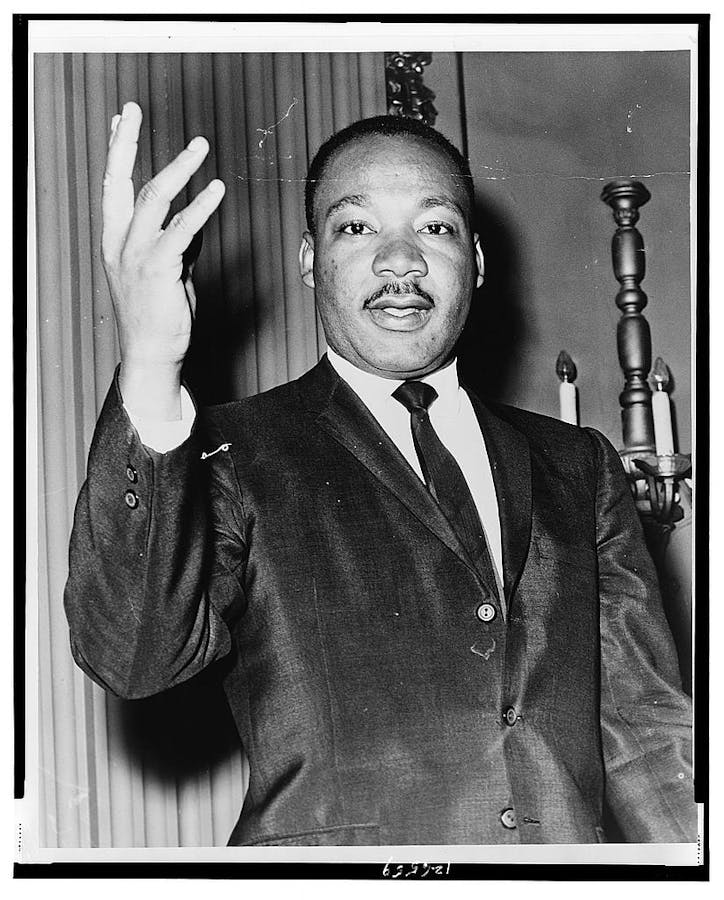
Set in the Garden of Eden, God, robed in gold and red, creates Eve from Adam's side.
Simon Bening (Flemish, about 1483 - 1561), illuminator
Border with the creation of Eve, about 1525–1530
Tempera colors, gold paint, and gold leaf, leaf: 16.8 × 11.4 cm (6 5/8 × 4 1/2 in.)
The J. Paul Getty Museum, Los Angeles, Ms. Ludwig IX 19, fol. 303, 83.ML.115.303
Digital image courtesy of Getty’s Open Content Program.
Human beings are social creatures. Other animals exhibit social behavior. However, research now suggests that perhaps the most important feature of humans is their ability to connect with each other.
Community is a prominent theme in the Bible. God created Eve so that Adam would not be alone. In the New Testament, Christians are described as one body. For some scholars, this social nature is also part of the meaning of imago Dei.
Human cooperation far exceeds other species, allowing us to amplify individual talents and accumulate knowledge. Only humans form societies that turn language into literature, imagination into art, curiosity into science, tribes into nation-states, and morality into justice.
“Man is more than a tiny vagary of whirling electrons or a wisp of smoke from a limitless smoldering. Man is a child of God, made in His image, and therefore must be respected as such.”
Martin Luther King Jr., Christmas Sermon, 1967
Humans are the only creatures who pass laws, debate moral codes, and reflect on right and wrong. What is the origin of morality?
This question has long puzzled scientists and philosophers. Oxford scholar and author C. S. Lewis suggested in his 1943 work Abolition of Man that the same basic moral teachings transcend time and culture. Some have argued morality evolved to promote individual survival. Others have pointed out that moral teachings often encourage people to sacrifice their own needs for the benefit of others.
The Bible says that God has written his moral laws on the human heart, which are nurtured among families and neighbors. Today, science has shed light on the importance of social networks to our moral sensibilities.
The biblical idea of imago Dei has led many people to find dignity in other human beings. This has helped turn the human drive to share, cooperate, and empathize into caring for the sick, the poor, and the marginalized in society. Even as some have used the Bible to justify oppression, many are motivated by it to fight against social, political, or economic injustice.
Perhaps nowhere is this more clearly seen than in the American civil rights movement. Leaders such as Martin Luther King Jr. appealed to imago Dei as the source of rights and dignity for all people in their fight for racial justice.
Humans are the only creatures who pass laws, debate moral codes, and reflect on right and wrong. What is the origin of morality?
This question has long puzzled scientists and philosophers. Oxford scholar and author C. S. Lewis suggested in his 1943 work Abolition of Man that the same basic moral teachings transcend time and culture. Some have argued morality evolved to promote individual survival. Others have pointed out that moral teachings often encourage people to sacrifice their own needs for the benefit of others.
The Bible says that God has written his moral laws on the human heart, which are nurtured among families and neighbors. Today, science has shed light on the importance of social networks to our moral sensibilities.
The biblical idea of imago Dei has led many people to find dignity in other human beings. This has helped turn the human drive to share, cooperate, and empathize into caring for the sick, the poor, and the marginalized in society. Even as some have used the Bible to justify oppression, many are motivated by it to fight against social, political, or economic injustice.
Perhaps nowhere is this more clearly seen than in the American civil rights movement. Leaders such as Martin Luther King Jr. appealed to imago Dei as the source of rights and dignity for all people in their fight for racial justice.











